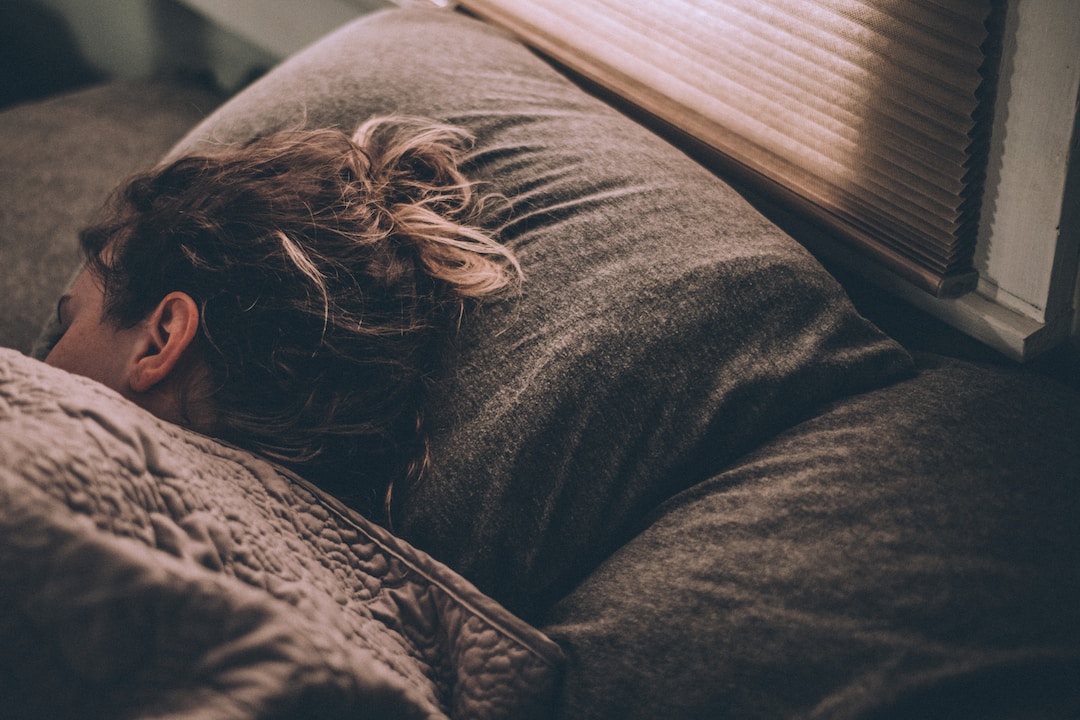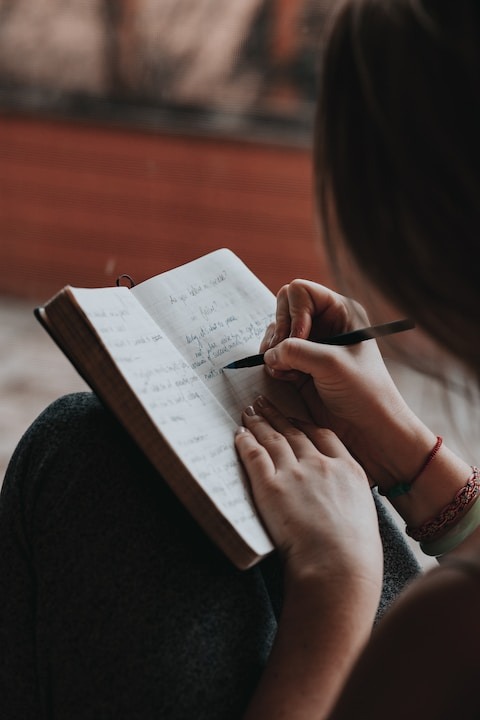
Having enough quality sleep is very important for the health of the body. Adequate sleep makes you energetic during the day, and your brain functions properly. Some people have no problem sleeping and sleep easily. Meanwhile, many people have severe problems falling asleep. Lack of sleep can negatively affect different parts of the body and brain, affecting learning, memory, moods, and emotions. Here, we introduce you to effective methods to sleep quickly and comfortably.
Lower the bedroom temperature.
When you sleep, your body temperature changes. Your body temperature goes down when you sleep and goes up when you get up. If the room is too hot, sleeping may not be easy. Adjust the room temperature between 15.6 and 19.4 degrees Celsius.
Taking a shower with hot water can also speed up the change in body temperature because after taking a shower, the body temperature decreases, and this causes a message to be sent to the brain to go to sleep.
A study showed that taking a shower before sleep can improve some sleep parameters, such as quality and quantity. A study showed that taking a shower one to two hours before sleeping positively affected the participants. Participants reported improved sleep even when in the shower for just 10 minutes. More research is needed in this area. However, the findings we have so far show positive results.
Use breathing method 4-7-8.
This simple but effective breathing method relaxes you before sleep and makes you sleep quickly and easily. This method uses breath control techniques and involves breathing patterns that calm the nervous system. You can use this method before sleeping when you are anxious or stressed. To perform this method, perform the following actions;
- First, place the tongue tip behind the upper part of the front teeth.
- Blow the air completely out of your mouth.
- Close your mouth and exhale through your nose and count to 4 in your mind.
- Hold your breath and count to 7 in your mind.
- Open your mouth and exhale entirely, and count to 8 in your mind.
- Repeat these movements at least three times.
Set a schedule for your sleep.
Many believe setting a bedtime routine will help them fall asleep faster. The body has a clock and regular system that makes the body alert during the day and sleepy at night.
If you wake up and sleep at a specific time daily, the body will get used to this situation. When the body adapts to this schedule, it becomes easier for you to sleep, and you can sleep at a specific time.
You should sleep 7 to 9 hours every night. Research has shown that this amount of sleep is suitable and sufficient for adults. Try to relax your body and mind for 30 to 45 minutes before going to bed. This makes the body and mind ready for sleep.
Do yoga, meditation, and mindfulness exercises.
It must have happened to you that you had trouble falling asleep when you were stressed. Yoga, meditation, and mindfulness exercises are among the exercises that relax the body and mind. In addition, research has shown that these exercises help you fall asleep quickly and comfortably.
Yoga releases the accumulated stress and tension in the body. Research shows that yoga can have a positive effect on sleep parameters. Meditation can increase melatonin levels. Melatonin is a chemical that the body produces during sleep. This substance regulates the speed of the body clock.
Mindfulness exercises also make you sleep better and perform better during the day. Doing one or all of these exercises can help you get a good night’s rest and be cheerful and energetic the following day.
Avoid looking at the clock.
Waking up in the middle of the night is typical. But your night’s rest is disrupted if you can’t go back to sleep. People who wake up in the middle of the night usually look at the clock and worry that they won’t be able to get back to sleep. Looking at the clock is common among people with insomnia. This may lead to stress and anxiety about insomnia.
If you wake up at a certain time every night, this may become a routine for your body. It is best to remove the clock from your room. If you need to set the clock for the morning, turn the clock backward (so you don’t see the hands), and if you wake up in the middle of the night, don’t look at the clock.
Do not nap during the day.
People with insomnia are sleepy during the day due to inadequate sleep at night, which leads to napping during the day. Although short naps during the day are associated with improved alertness and health, there are conflicting opinions about the effects of napping on nighttime sleep.
Some studies have shown that taking regular naps for a long time (at least two hours) and late at night may decrease the quality of night sleep and even cause insomnia. A study of 440 college students showed that students who napped three or more times per week, those who rested more than two hours a day, and those who napped late, between 6 and 9 p.m. They had the lowest quality sleep.
Another study concluded that adults who napped regularly had lower sleep quality, were more depressed, and had less physical activity. They were also more likely to be overweight than people who rarely napped.
Paradoxically, other studies have shown that napping during the day does not affect nighttime sleep. Therefore, it is better to consider the body’s reaction to napping and see if you can easily fall asleep at night when you doze.
Pay attention to the time and what you eat.
The food you eat at night before bed seems to affect your night’s sleep. For example, one study found that foods high in carbohydrates may be detrimental to a good night’s sleep.
A review of several studies concluded that while a high-carb diet can help you fall asleep quickly and soundly, it won’t be restful. Conversely, a diet high in fat can help you sleep deeper and more restfully.
Several studies have agreed that a high-carb, low-fat diet significantly reduces sleep quality compared to a low-fat diet. However, if you want to eat a high-carb meal for dinner, you should eat it four hours before bed so your body has enough time to digest it.
Listen to soothing music.
Listening to music is another effective way to fall asleep quickly and increase sleep quality. Music has a fantastic effect on sleep. Music can even be used to treat chronic sleep disorders such as insomnia. A study of 24 young adults found that listening to soothing music helped them fall asleep faster and deeper.
Another study found that people who listened to soothing music in bed for 45 minutes slept more deeply than those who did not. If you don’t have access to relaxing music, creating complete silence at home can also help you fall asleep faster.
Exercise throughout the day.
It is commonly believed that physical activity is beneficial for quality sleep. Exercising can improve the quality of sleep through the production of serotonin in the brain, reduce cortisol (stress hormone), and make you sleep quickly and satisfactorily.
However, note that the exercise intensity should be moderate, and you should not overdo it. Excessive exercise is associated with poor and poor-quality sleep. Exercise time is also essential. Exercising early morning is better for quality sleep than late in the day. You can do sports in the morning, such as jogging, cycling, tennis, etc., so that you can fall asleep faster at the end of the night.
Turn off all electronics.
Using electronic devices at night’s end is the worst thing for sleeping. Watching TV, using cell phones, and using the Internet can all make it significantly harder to fall asleep. This is partly because electronic devices emit blue light, which has been shown to inhibit the release of the melatonin hormone.
Using these devices also keeps your mind active and engaged; It is clear that this prevents a quick and comfortable sleep. Turning off all electronic devices before going to sleep is recommended so you can fall asleep in a quiet place.

Practice writing before bed.
Some people cannot sleep properly because many thoughts are in their minds. Research shows that this can cause stress and anxiety, producing negative emotions and disrupting sleep.
Taking notes before bed and focusing on positive thoughts can calm your mind and help you sleep better and faster. Writing down positive events that happened to you during the day or will occur in the future can lead to feelings of happiness and gratitude and reduce stress.
A study of 41 students showed that taking notes before going to sleep decreased anxiety and stress and increased sleep quality. Spend 15 minutes every night before bed writing down your day.
In doing this, you should focus on the positive events that happened during the day and record how you feel right now. Another study found that writing down a to-do list for the next day helped young people sleep better and faster.
Limit caffeine intake and drink soothing drinks.
Many people use caffeine to fight fatigue and increase their alertness. Caffeine is found in various foods and beverages, such as chocolate, coffee, soft drinks, and energy drinks.
Caffeine is a stimulant that can harm your sleep quality and duration. Although the effects of caffeine on different people are not the same, in any case, it is recommended not to consume caffeine at least 6 hours before sleep. Instead of coffee, you can have soothing drinks like chamomile tea. Chamomile tea has been shown to help you sleep better and faster.
Adjust your sleeping position.
Having quality sleep depends on how you sleep at night. Usually, those who sleep on their back have faster and better quality sleep. However, research has shown that sleeping on your back is not the best sleeping position and may lead to blocked airways, sleep apnea or interrupted breathing, and snoring. Sleep apnea is a type of sleep disorder in which the airways in the nose and throat are wholly or partially blocked. Although personal preference is vital in choosing a sleeping position, side sleeping is associated with quality sleep.
Read a book before going to bed.
Reading is an excellent option to relax the mind before going to sleep. It is the same in children, and reading makes them sleep longer. However, note that reading a book from a mobile phone or laptop differs from reading a book that can be touched.
Electronic devices emit blue light, which reduces melatonin secretion. Low melatonin levels make it harder to fall asleep and make you feel tired the next day. Therefore, it is recommended to read a paper book to relax your mind and improve the quality of your sleep.
Visualize things that make you happy.
Imagine a place where you feel happy and relaxed instead of thinking about stressful things while in bed. In an insomnia study, participants fell asleep faster and better when visualizing good things before falling asleep. This technique helped them occupy their minds with positive thoughts instead of worrying about them before sleeping.
Take sleep-enhancing supplements.
Some supplements can help you fall asleep faster. Research has shown that these supplements increase the production of sleep-promoting hormones and calm the brain. Some of the supplements that help you fall asleep faster are as follows;
- Magnesium: Magnesium activates the reaction of neurotransmitters for sleep. Research has shown that taking 500 mg of magnesium improves sleep. This supplement should be taken with food.
- Melatonin: Your body naturally produces the hormone melatonin; however, you can also take melatonin supplements to help regulate your sleep. Taking 0.5 to 5 mg of this supplement two hours before bedtime may improve sleep quality.
- L-theanine: This supplement is an amino acid that has soothing properties. This supplement can relax your mind. Taking 400 mg of L-theanine is beneficial for sleep.
Count to 100.
An old strategy that our parents advised us to do when we were kids and couldn’t sleep was to count to 100. This will keep your mind from stressful thoughts and make you tired and fall asleep earlier.
Having trouble sleeping not only bothers you but also affects your mental and physical health. In this article, we mentioned the introduction of effective tricks to fall asleep faster. These tricks will help you have a quick and quality sleep and be energetic and happy the next day.
Why is quality sleep important for the body?
Quality sleep is important for the body because it makes you energetic during the day and ensures your brain functions properly. Lack of sleep can negatively affect different parts of the body and brain, affecting learning, memory, moods, and emotions.
How does lowering the bedroom temperature help with sleep?
Lowering the bedroom temperature can help with sleep because your body temperature goes down when you sleep and goes up when you get up. If the room is too hot, sleeping may not be easy. The recommended room temperature for sleep is between 15.6 and 19.4 degrees Celsius.
What is the 4-7-8 breathing method?
The 4-7-8 breathing method is a technique that involves breathing patterns that calm the nervous system. It involves placing the tongue tip behind the upper part of the front teeth, blowing the air completely out of your mouth, closing your mouth and exhaling through your nose while counting to 4 in your mind, holding your breath and counting to 7 in your mind, opening your mouth and exhaling entirely while counting to 8 in your mind. This sequence should be repeated at least three times.
How does setting a sleep schedule help with sleep?
Setting a sleep schedule helps with sleep because the body has a clock and regular system that makes the body alert during the day and sleepy at night. If you wake up and sleep at a specific time daily, the body will get used to this situation, making it easier for you to sleep.
How do yoga, meditation, and mindfulness exercises help with sleep?
Yoga, meditation, and mindfulness exercises help with sleep because they relax the body and mind. Yoga releases the accumulated stress and tension in the body, meditation can increase melatonin levels, and mindfulness exercises can improve sleep quality and daytime performance.
Why should one avoid looking at the clock when they wake up in the middle of the night?
Looking at the clock when waking up in the middle of the night can lead to stress and anxiety about insomnia. It’s better to remove the clock from your room or turn it backward to avoid seeing the time if you wake up in the middle of the night.
How does napping during the day affect nighttime sleep?
Napping during the day can affect nighttime sleep in different ways. Some studies have shown that long and late naps can decrease the quality of night sleep and even cause insomnia. However, other studies have shown that napping during the day does not affect nighttime sleep. It’s best to consider your body’s reaction to napping.
How does the food you eat at night affect your sleep?
The food you eat at night can affect your sleep. Foods high in carbohydrates may be detrimental to a good night’s sleep, while a diet high in fat can help you sleep deeper and more restfully.
How does exercise affect sleep?
Exercise can improve the quality of sleep through the production of serotonin in the brain and reduce cortisol (stress hormone). However, the exercise intensity should be moderate, and you should not overdo it. Excessive exercise is associated with poor and poor-quality sleep.
Why should one avoid using electronic devices before sleep?
Using electronic devices before sleep can make it significantly harder to fall asleep. This is partly because electronic devices emit blue light, which hasbeen shown to inhibit the release of the melatonin hormone. Using these devices also keeps your mind active and engaged, which can prevent a quick and comfortable sleep.
How can writing before bed help with sleep?
Writing before bed can help with sleep because it can cause stress and anxiety to decrease, producing positive emotions and improving sleep. Writing down positive events that happened during the day or will occur in the future can lead to feelings of happiness and gratitude and reduce stress.
How does caffeine intake affect sleep?
Caffeine is a stimulant that can harm your sleep quality and duration. It’s recommended not to consume caffeine at least 6 hours before sleep. Instead of coffee, you can have soothing drinks like chamomile tea, which has been shown to help you sleep better and faster.
How does your sleeping position affect your sleep quality?
Your sleeping position can affect your sleep quality. Those who sleep on their back usually have faster and better quality sleep. However, research has shown that sleeping on your back may lead to blocked airways, sleep apnea or interrupted breathing, and snoring. Side sleeping is associated with quality sleep.
How does reading a book before bed help with sleep?
Reading a book before bed can help relax the mind and improve sleep quality. However, it’s recommended to read a paper book rather than using electronic devices, as they emit blue light, which reduces melatonin secretion and makes it harder to fall asleep.
How can visualizing things that make you happy help with sleep?
Visualizing a place where you feel happy and relaxed instead of thinking about stressful things while in bed can help with sleep. This technique can help occupy your mind with positive thoughts instead of worrying about them before sleeping.
What are some supplements that can help with sleep?
Some supplements that can help with sleep include Magnesium, which activates the reaction of neurotransmitters for sleep, Melatonin, a hormone that your body naturally produces to help regulate your sleep, and L-theanine, an amino acid that has soothing properties and can relax your mind.
How does counting to 100 help with sleep?
Counting to 100 can help with sleep because it keeps your mind from stressful thoughts and makes you tired, helping you fall asleep earlier.







